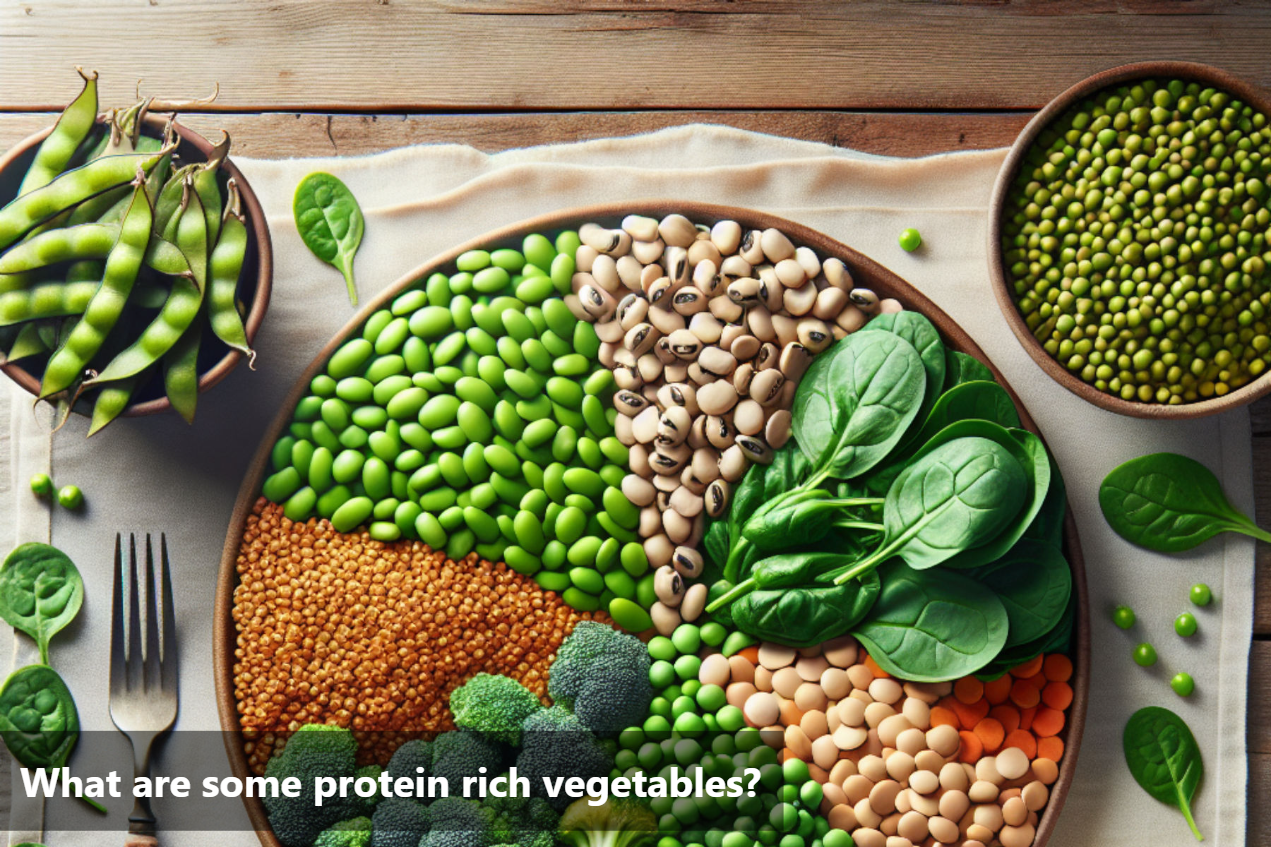
What are some protein rich vegetables?
Protein is an essential nutrient that plays a crucial role in the overall health and well-being of an individual. While many people associate protein primarily with meat and dairy products, vegetables also serve as valuable sources of this vital nutrient. Consuming vegetables rich in protein can offer numerous health benefits, making them an important component of a balanced diet.
Notably, protein-rich vegetables provide an excellent alternative for individuals looking to increase their protein intake while also maintaining a plant-based diet. Incorporating these vegetables into daily meals not only helps meet the body's protein requirements but also contributes to overall health and vitality.
Understanding the significance of including protein-rich vegetables in one's diet is key to promoting better health outcomes. By diversifying your vegetable choices to include those high in protein, you can enhance your nutritional intake and support various bodily functions.

Exploring Protein-Packed Vegetables
Items |
Protein Content |
Benefits |
Lentils |
Approximately 9g per 100g serving. |
High in protein and fiber, making them a great plant-based protein source. Rich in iron, folate, and other essential nutrients. |
Chickpeas (Garbanzo Beans) |
Approximately 8g per 100g serving. |
Packed with protein and fiber, chickpeas are also a good source of vitamins and minerals such as iron, phosphorus, and zinc. Versatile ingredient for salads, soups, and curries. |
Green Peas |
Approximately 5g per 100g serving. |
Rich in protein and dietary fiber, green peas are also high in vitamins A, C, and K, as well as antioxidants. Great addition to stir-fries, pasta dishes, and salads. |
Spinach |
Approximately 3g per 100g serving. |
Although relatively low in protein compared to legumes, spinach is still a good source of this nutrient. Additionally, it's rich in iron, vitamins A and C, and antioxidants. |
Broccoli |
Approximately 3g per 100g serving. |
Broccoli provides a modest amount of protein along with essential nutrients like vitamin C, vitamin K, and folate. It also contains various bioactive compounds with potential health benefits. |
Brussels Sprouts |
Approximately 3g per 100g serving. |
Brussels sprouts offer a decent amount of protein along with fiber, vitamins, and minerals such as vitamin C, vitamin K, and folate. They're also rich in antioxidants and may have anti-inflammatory properties. |
Asparagus |
Approximately 2.2g per 100g serving. |
Asparagus is a low-calorie vegetable that provides a moderate amount of protein along with fiber, vitamins A, C, and K, and folate. It's also rich in antioxidants and may support digestive health. |
5 Nutritious Recipes
Recipe |
Ingredients |
Instructions |
|---|---|---|
Edamame Salad |
|
|
Lentil Soup |
|
|
Chickpea Stir-Fry |
|
|
Spinach and Feta Stuffed Bell Peppers |
|
|
Roasted Asparagus with Parmesan |
|
|

Green Protein: A Guide to Protein-Rich Vegetables
Incorporating protein-rich vegetables into your daily meals is key to maintaining a well-rounded diet and enhancing your overall health. Vegetables rich in protein offer a plethora of benefits that contribute to your overall well-being.
These nutrient-dense vegetables not only provide essential proteins for muscle growth and repair but also contain a variety of vitamins, minerals, and antioxidants vital for a healthy body. By including a diverse range of protein-rich vegetables in your meals, you can ensure that you are meeting your nutritional needs while enjoying delicious and satisfying dishes.
Make it a priority to incorporate protein-rich vegetables like spinach, broccoli, and Brussels sprouts into your meals to reap the numerous health benefits they offer. Embracing these nutrient-packed options can help you achieve a balanced diet, promote better health, and elevate your overall quality of life.
This Blog post is an initiative by Lo! Foods, to provide accurate and Nutritionist / Doctor approved information related to Health. Lo! Foods is India's leading brand for Everyday Functional Foods. Foods designed for specific Health conditions or Needs. Lo! Foods also runs India's largest range of Low Carb Healthy Cloud Kitchens, under the brand names of Lo!, ProteinChef, ATH (All Things Healthy) and DiabeSmart.











Leave a comment
Your email address will not be published.